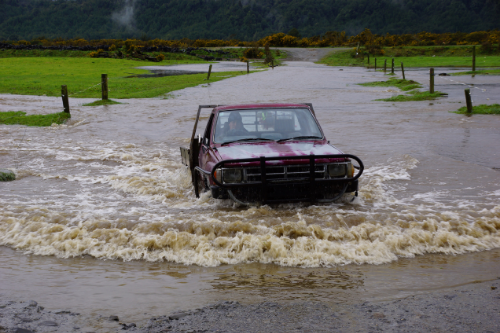

The storm that struck New Zealand’s West Coast on July 16 to 19 resulted in a total of 5,207 claims and over $122 million in insured losses, according to preliminary figures from the Insurance Council of New Zealand.
The storm, which was issued a rare red weather warning by Metservice, caused severe flood damage in Westport. Slips and flooding were also reported throughout upper South Island, Wellington and North Island.
Insurers received 3,790 claims for house and contents insurance, 795 for commercial and business- related cover and 590 claims for motor vehicles. Home insurance claims made up the bulk of the insured losses, at over $99.5 million.
“The value of insurance is powerfully demonstrated with the support provided to Westport customers, where we have seen insurers meet over $85 million of losses in a town with a population of about 4,000,” said Tim Grafton, ICNZ chief executive. “Insurance has never been more important. This year, severe weather has affected many of our communities, with the impacts of climate change being felt by many, with severe weather becoming more frequent and more severe.”
With New Zealand under COVID-19 lockdown, ICNZ said insurers are processing existing claims for affected customers where restrictions have allowed. The companies are also engaging with those awaiting repairs, to ensure that clear expectations are outlined for the remaining work.
The industry body noted the knock-on effect of a very active pre-lockdown building market, alongside ongoing COVID-19 related impacts. In some cases, insurers reported difficulties in securing specific tradespeople or subcontractors. Some have also experienced delays or longer lead times for certain building materials or household items. Recovery activities in Westport were also affected by a shortage of accommodation for tradies coming into the region to carry out work.
“These aspects are completely out of insurers’ hands, but they are doing all they can to support their customers affected by delays or the impacts of COVID on supply chains that may mean a longer recovery for some,” Grafton said.
